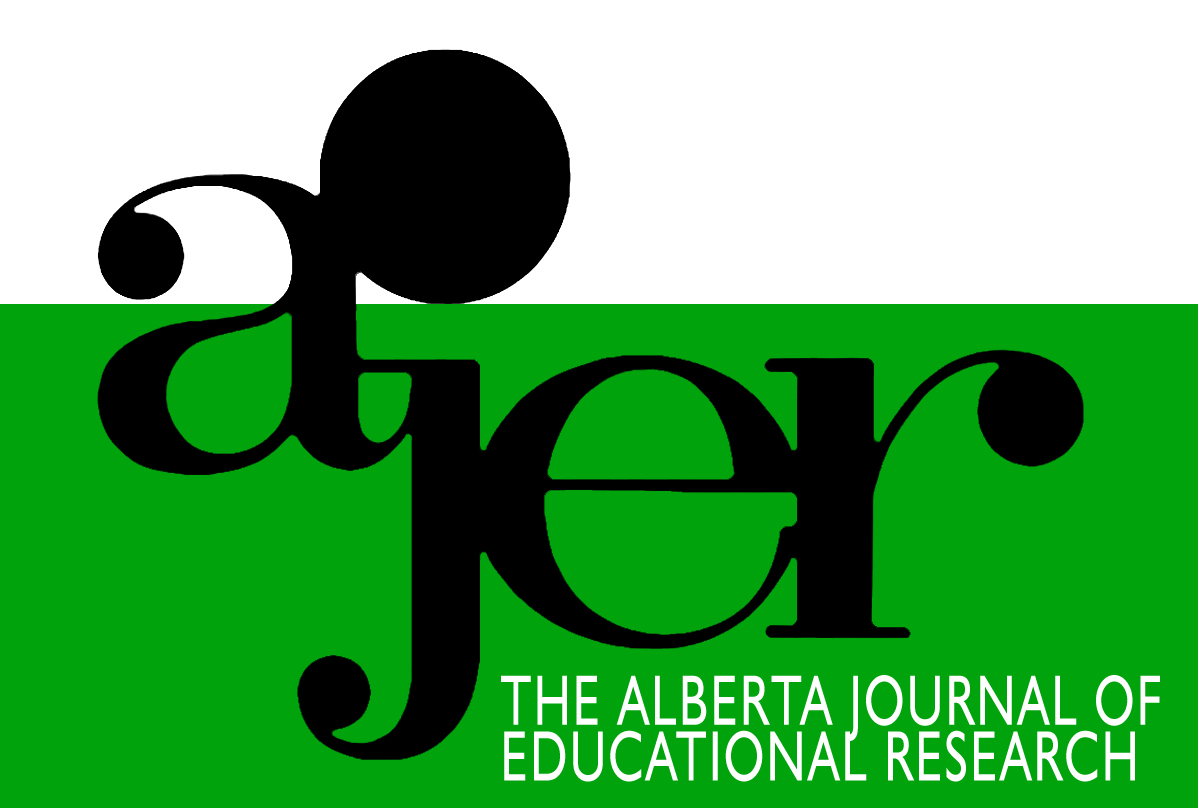Teaching Indigenous Literatures for Decolonization: Challenging Learning, Learning to Challenge
DOI:
https://doi.org/10.55016/ojs/ajer.v66i2.68509Abstract
This paper examines the significance of colonial contexts that influence the teaching of Indigenous literatures. It draws upon conversations I held with Indigenous writers and with secondary educators, in which we discussed the relationships between Indigenous communities, Indigenous literatures, and classroom teaching in Canada. In dialogue with teachers’ and authors’ perspectives, this paper argues that, when Indigenous stories are told and taught, readers are invited to challenge colonial understandings and are implicated into challenging classroom experiences. The pedagogical experiences precipitated by Indigenous literatures can be difficult for teachers and students, leading to unsettling dynamics, but are importantly decolonizing.
Keywords: Indigenous literatures, Indigenous education, decolonization, resurgence, métissage
Cet article examine la signification des contextes coloniaux qui influencent l’enseignement des littératures autochtones. Il puise dans des conversations que j’ai eues avec des écrivains autochtones et des enseignants du secondaire au cours desquelles nous avons discuté des rapports entre les communautés autochtones, les littératures autochtones et l’enseignement en classe au Canada. S’appuyant sur les perspectives des enseignants et des auteurs, l’article soutient que lorsqu’on raconte ou qu’on enseigne des récits autochtones, on invite les lecteurs à remettre en question des perspectives coloniales et à participer à des expériences stimulantes en classe. Les expériences pédagogiques précipitées par les littératures autochtones peuvent s’avérer difficiles pour les enseignants et les élèves, et une dynamique perturbante peut en découler, mais leur rôle dans la décolonisation est important.
Mots clés: littératures autochtones; éducation autochtone; décolonisation; résurgence; métissage
Downloads
Published
Issue
Section
License
UNIVERSITY OF ALBERTA COPYRIGHT LICENSE AND PUBLICATION AGREEMENT
If accepted, authors will be asked to sign a copyright agreement with the following points:
A. Where there is any inconsistency between this Copyright License and Publication Agreement and any other document or agreement in relation to the same subject matter, the terms of this Agreement shall govern.
B. This document sets out the rights you are granting in relation to publication of your article, book review, or research note entitled (the “Article”) through inclusion in the academic journal titled Alberta Journal of Educational Research (the “Journal”) published through the Faculty of Education, representing the Governors of the University of Alberta (the “Journal Editor”).
C. There will be no payment to you for this publication and grant of rights. In consideration of the agreement to publish the Article in the Journal:
1. You are warranting that:
- the content of the Article is your original work, and its content does not contain any material infringing the copyright of others; or, where the Article is not entirely your original work, you have obtained all necessary permissions in writing to grant the rights you are giving in this agreement;
- the content of the Article does not contain any material that is defamatory of, or violates the privacy rights of, or discloses the confidential information of, any other person;
- the Article has not been published elsewhere in whole or in part, and you will not allow publication of the Article elsewhere without the consent of the Journal Editor;
- the names of all co-authors and contributors to the Article are:
2. You agree to license the copyright in the Article to the Journal Editor, on a worldwide, perpetual, royalty free basis; and to the extent required by the terms of this agreement. You shall retain the right at all times to be acknowledged as the/an author of the Article.
3. You further agree that the Journal Editor has the entitlement to deal with the Article as the Journal Editor sees fit, and including in the following manner;
- The right to print, publish, market, communicate and distribute the Article and the Journal, in this and any subsequent editions, in all media (including electronic media), in all languages, and in all territories, ing the full term of copyright, and including any form of the Article separated from the Journal, such as in a database, abstract, offprint, translation or otherwise, and to authorize third parties to do so;
- The right to register copyright of the Journal;
- The right to edit the Article, to conform to editorial policy as the Journal Editor sees fit.
4. If any co-author or contributor to the Article does not sign this agreement, the Journal Editor reserves the right to refuse to publish the Article.



